Do Not Or Does Not Does is only used in singular third person In other cases do is used The addition of not does not matter Therefore 1a and 2a are correct In the first sentence the way is the subject hence the singular form does is used In the second sentence the entries is plural so you need the plural form do
Taking the prefatory clause If you will not leave tonight the connotation is that the subject of this clause can decide whether he does or does not leave The clause If you do not leave tonight is similar overall but has the connotation that whether the subject wants to leave or not may not be the final say in the matter Do is just a little unusual because the pronunciation for the singular and plural subjects are different That is unlike Go and all the other verbs listed above for which adding s es at the end does not change the sound of the vowel Go Goes have the same long O sound Do Does Doo duhz sound different
Do Not Or Does Not
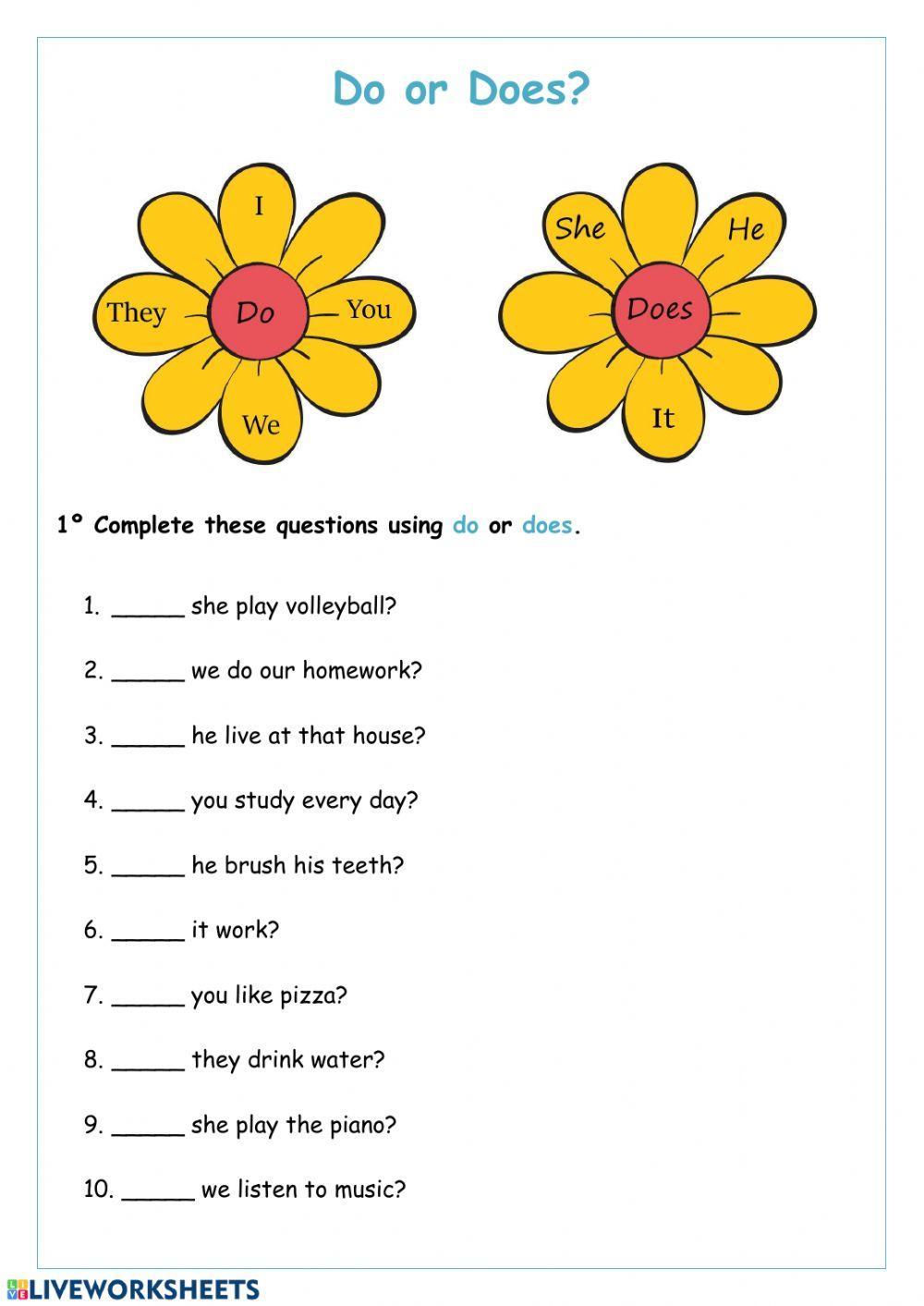
Do Not Or Does Not
https://www.liveworksheets.com/sites/default/files/styles/worksheet/public/def_files/2020/4/28/4281754293100/4281754293100001.jpg?itok=eWcwX3J9

Present Simple Tense PPT
https://image.slidesharecdn.com/presentsimpletense-200421185004/75/Present-simple-tense-12-2048.jpg
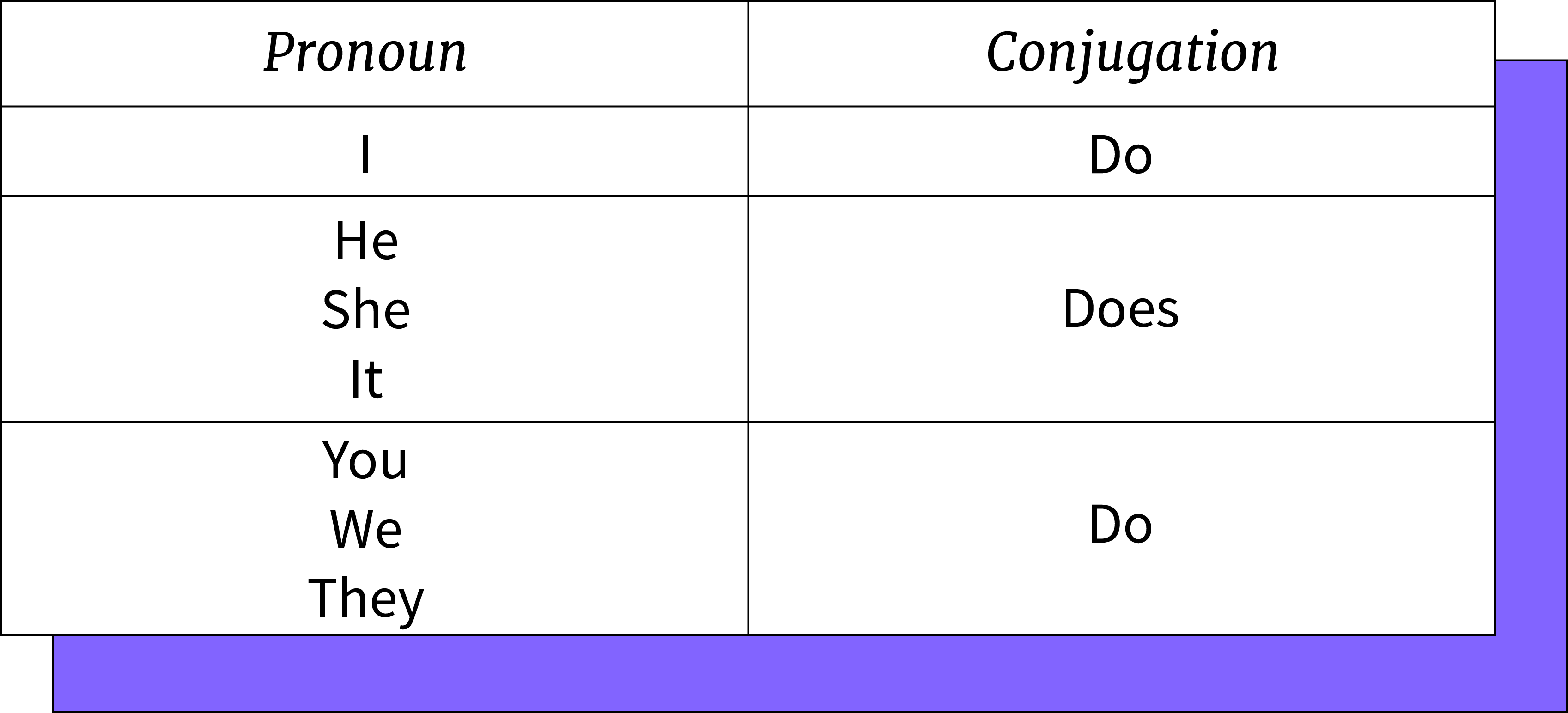
Do E Does Exerc cios BRAINCP
https://gcfglobalidiomas.blob.core.windows.net/idiomas-container/course/en/levels/image/1544021153313-1531746477086-tabla-conjugacion-do.png
The use of do does did not n t is a relatively late development The question why to do for negation is justified Though I can t proof it I think the reason is the following in spoken Englisch verb forms not are contracted English would get a lot of irregular forms if it would not use to do You need not come For all other main verbs that don t have an auxiliary verb you add the auxiliary verb do and then negate the auxiliary verb The auxiliary verb has two cases does for third person singular he she it and do for everything else When negated this can be written out in full do not does not or contracted don t doesn t
The negative of the present tense is formed by adding do not does not or the abbreviated form between the subject and the verb only with modal verbs you place not after the modal verb to form the negative I have not could be understood as short for I have not past participle which is the negative form of the present perfect He does not eat meat He do not eat meat Now we can see very clearly that the latter is grammatically incorrect Whether you should use doesn t or don t depends on whether the subject is singular or plural He doesn t speak French They don t speak French
More picture related to Do Not Or Does Not
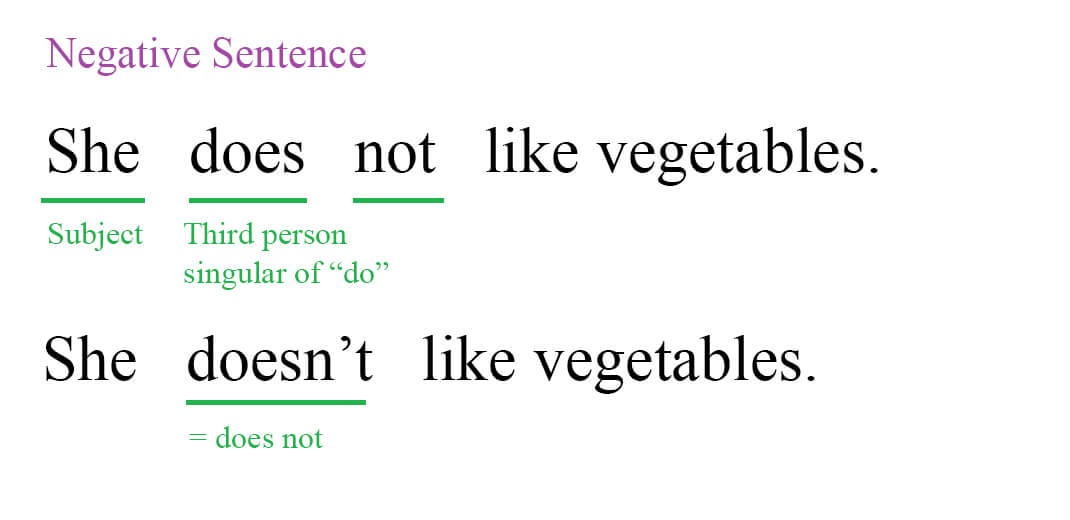
Negative Sentence In Simple Present Tense ALULA The AI English Tutor
https://alulaenglish.com/lessons/static/lesson_images/grammar_does_not_like_vegetables.jpg

Do don t does doesn t English Grammar For Kids Grammar For Kids
https://i.pinimg.com/originals/08/e7/f9/08e7f963ca72eb3d24668d14a4f36652.jpg

Englisch bungen Do Does Zum Ausdrucken
https://i.pinimg.com/originals/96/c3/41/96c341ce315d8268effbd1c4ab09f25f.jpg
This sentence is bugging me Just because you have an opinion it doesn t mean you are right Why is doesn t used instead of don t Shouldn t it be Just because you have an opinion it don t me I do not read Cicero means you choose not to read Cicero you probably find his works boring You should not be disturbed by the fact that two expressions mean approximately the same thing In fact there are many more than two I am unable to understand why I fail to understand why I am at a loss to understand why I cannot conceive why
[desc-10] [desc-11]

Do Not Or Does Not YouTube
https://i.ytimg.com/vi/OpEcewb7U8c/maxresdefault.jpg

A Poster With Words And Pictures On It That Say Don t Doesn t
https://i.pinimg.com/originals/90/20/5b/90205bd18b60b80b63861b2767156951.jpg

https://english.stackexchange.com › questions
Does is only used in singular third person In other cases do is used The addition of not does not matter Therefore 1a and 2a are correct In the first sentence the way is the subject hence the singular form does is used In the second sentence the entries is plural so you need the plural form do
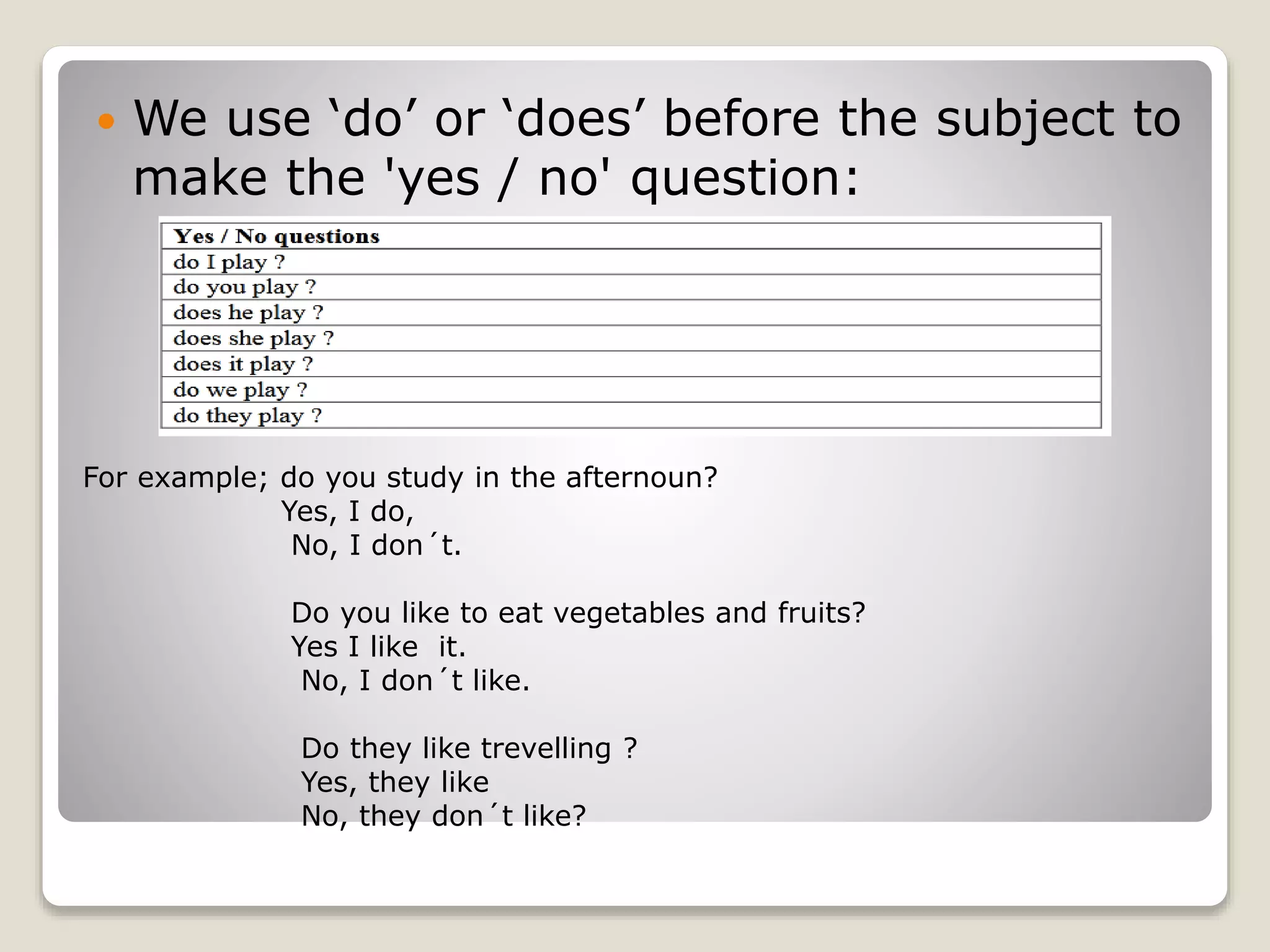
https://ell.stackexchange.com › questions › do-does-not-vs-will-not
Taking the prefatory clause If you will not leave tonight the connotation is that the subject of this clause can decide whether he does or does not leave The clause If you do not leave tonight is similar overall but has the connotation that whether the subject wants to leave or not may not be the final say in the matter
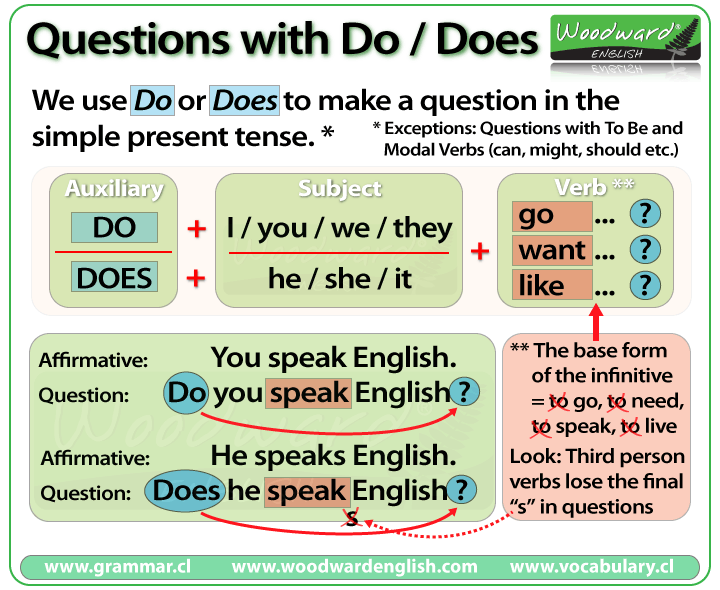
LearnEnglishUnesr Do Does

Do Not Or Does Not YouTube

SIMPLE PRESENT TENSE

Do Vs Does How To Use Does Vs Do In Sentences Confused Words
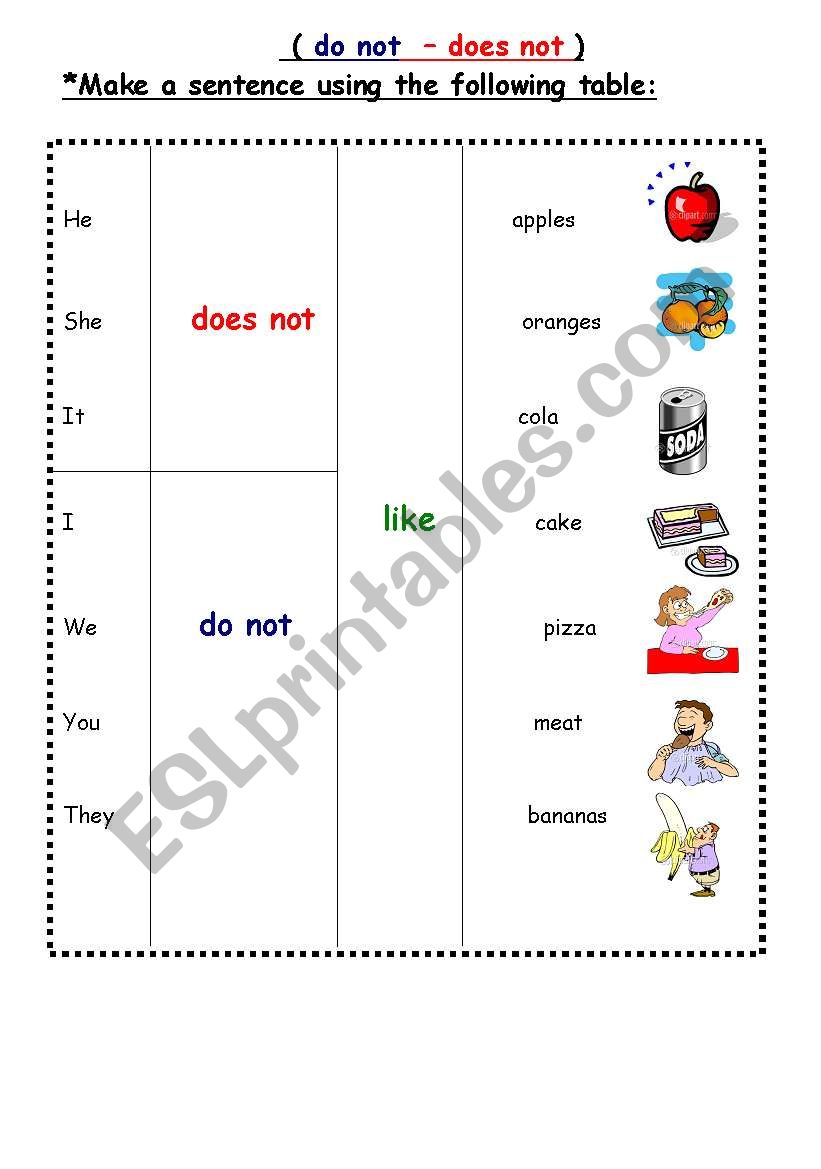
Do Does Not ESL Worksheet By Almaha

DO DOES DON T DOESN T Worksheet Free ESL Printable Worksheets Made

DO DOES DON T DOESN T Worksheet Free ESL Printable Worksheets Made

6 Don t Doesn t Do Does Auxiliares Del Present Simple YouTube

The Worksheet For Do Don t Does Doesn t Is Shown In Red And

Do Does Is Used In This Simple Form Interrogativa Does Is Used In The
Do Not Or Does Not - [desc-12]